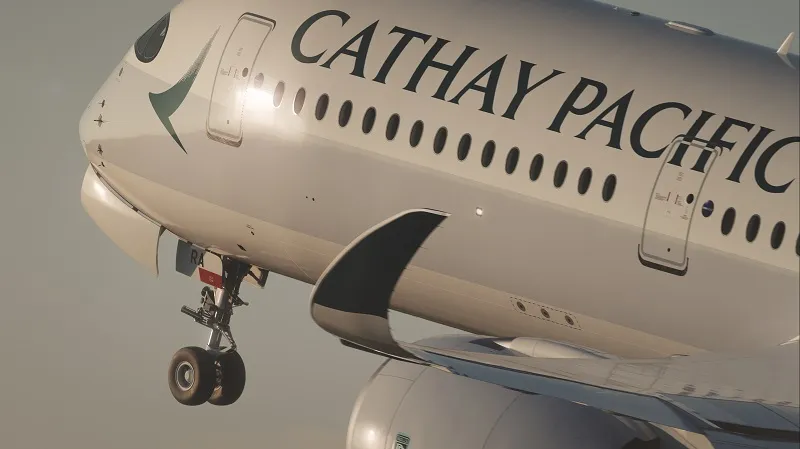
Cathay and Qantas codeshare bid rejected.
May 28, 2019

Cathay Pacific and Qantas Airways faced a setback when their proposed codeshare agreement was rejected by Australian competition regulators. The Australian Competition and Consumer Commission expressed concerns that the partnership could reduce competition on key routes between Australia and Asia. Regulators highlighted the potential for higher fares and less choice for travelers as a significant issue. Both airlines had aimed to enhance their connectivity and streamline operations, but the decision underscores the regulatory scrutiny surrounding airline collaborations, particularly in markets where competition is already limited. The rejection reflects ongoing challenges in achieving cooperative arrangements in the aviation industry.
Understanding the Cathay and Qantas Codeshare Bid Rejection
In a significant development in the aviation industry, the proposed codeshare agreement between Cathay Pacific and Qantas has been officially rejected. This decision has raised eyebrows and sparked discussions among aviation experts, industry analysts, and travel enthusiasts. The codeshare arrangement was aimed at enhancing connectivity, expanding networks, and making travel more seamless for passengers between Australia and Hong Kong. However, the rejection has implications that extend beyond mere operational logistics.
Reasons Behind the Rejection
The regulatory bodies involved in the decision cited several reasons for the rejection of the codeshare bid. Some of the most notable factors include:
- Market Competition: The regulators expressed concerns that the codeshare could lead to reduced competition in the airline market. By allowing two major carriers to collaborate closely, the potential for monopolistic practices in certain routes could increase.
- Consumer Impact: There were worries that the codeshare agreement would not necessarily benefit consumers. With potential price increases and fewer choices, the regulators believed that the collaboration could hinder passenger interests.
- Regulatory Compliance: Both airlines had to demonstrate their ability to comply with various international aviation regulations. The decision indicated that the proposed codeshare did not meet all necessary compliance standards.
Implications for Cathay Pacific and Qantas
The rejection of the codeshare bid has far-reaching implications for both Cathay Pacific and Qantas. Below are some potential consequences:
| Impact | Cathay Pacific | Qantas |
|---|---|---|
| Network Expansion | Limited ability to expand routes to Australia | Restricted access to Asian markets |
| Passenger Experience | Fewer options for seamless travel | Inability to leverage Cathay's network |
| Revenue Generation | Potential loss of revenue from Australian travelers | Missed opportunities in high-yield Asian routes |
Reactions from Industry Leaders
The rejection has elicited various responses from industry leaders. Many have shared their insights on the future of international aviation and the necessity for codeshare agreements in a modern, interconnected world.
Alan Joyce, CEO of Qantas, expressed disappointment over the decision, highlighting the potential for improved services and connectivity that the partnership could have offered. On the other hand, Augustus Tang, CEO of Cathay Pacific, emphasized the importance of collaboration in enhancing global travel networks and indicated that the airline would explore other avenues for partnerships.
Future Prospects for Codeshare Agreements
Despite this setback, the future of codeshare agreements remains promising. Airlines worldwide continue to seek partnerships to enhance their offerings and improve passenger convenience. The key to successful codeshare arrangements lies in:
- Regulatory Compliance: Ensuring that all collaborations meet the necessary legal and regulatory standards.
- Market Analysis: Conducting thorough assessments to understand consumer needs and competitive landscapes.
- Innovative Solutions: Exploring creative partnerships that can provide value to passengers while maintaining market competition.
Conclusion
The rejection of the Cathay Pacific and Qantas codeshare bid serves as a reminder of the complexities involved in international aviation partnerships. While the decision may pose challenges for both airlines, it also opens the door for further discussions on how to foster collaboration while ensuring a competitive market that benefits consumers. As the aviation industry continues to evolve, the pursuit of effective codeshare agreements will remain a critical component of airline strategies moving forward.
In conclusion, the aviation landscape is dynamic, and the interplay between regulatory bodies, market competition, and consumer interests will shape the future of airline collaborations. Stakeholders will need to adapt and innovate to navigate these complexities successfully.
Related Articles

Explore Thailand: The Best Islands to Visit for Paradise, Adventure, and Relaxation

The Ultimate Guide to the Best Islands in Thailand for Your Next Getaway

Do babies need passports? How to get a passport for a newborn

How to get a U.S. passport fast: here’s how to expedite the process

What is Mobile Passport Control: 5 reasons why you should use it

SENTRI vs. Global Entry: A detailed guide

Do you need a passport to go to the Bahamas? Let’s find out

Do you need a passport to go to Mexico? A detailed guide

Do you need a passport to go to Canada? We got the answer

Do You Need a Passport for a Cruise: An Essential Travel Guide

Booster Seat Requirements: All the Rules to Follow in Your Rental Car

What Are the World’s Most Powerful Passports, and How Does Yours Rank?

How to Take a Passport Photo at Home: A Helpful Guide

You've got to have heart! Southwest's new livery

Your opinion: Should water be free on low cost carriers?

Young women bolder than guys as solo travellers
